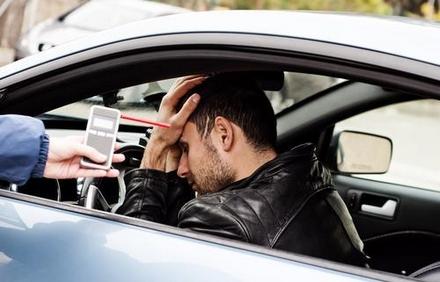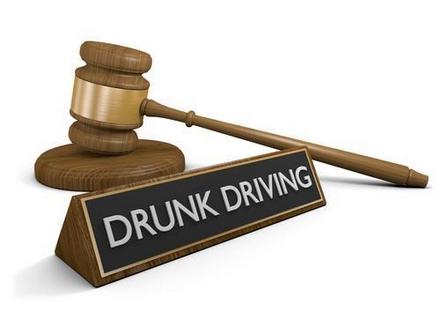TELEPHONES ANSWERED 24 HOURS A DAY
Recent Blog Posts
Actions and Behaviors that Result in Domestic Violence Charges
 The Illinois State Police report that domestic violence results in more injuries that require medical attention than a number of other violent incidents combined, including rape and muggings. Every fifteen seconds, a woman is beaten in the United States, and two out of every five women who are murdered are murdered by their husbands. With staggering statistics such as these, it is no wonder domestic violence continues to draw a heavy spotlight in our communities right here in Illinois state and throughout the nation.
Domestic Violence Charges Change Lives
Those accused of domestic violence offenses face a range of penalties, all of which yield the power to drastically alter the offender’s life. Under the Violence Against Women Act, a domestic violence act is considered a federal crime, with prison terms ranging from five years to life, depending on the nature of the bodily injury inflicted on the victim.
Along with prison time, offenders may be required to pay the victim for losses to account for any medical or psychological care, physical therapy, transportation, or temporary housing that was acquired due to the crime. They may also be held liable for child care expenses, lost income, attorney fees, and other costs that were incurred from obtaining a civil protection order. These fines, paired with jail time and damage to a reputation, can severely impact an offender’s life for the long term.
What Defines Domestic Violence?
According to the United States Department of Justice, a pattern of abusive behavior that is used by one partner to gain or maintain power and control over another intimate partner is defined as domestic violence. There are various types of abuse, ranging from sexual and physical to emotional and psychological abuse. Actions and behaviors that are illegal and can result in criminal charges include everything from hitting, slapping, and sexual assault, to undermining someone's sense of self-worth. Calling an intimate partner names, making threats against them or their family or pets, stalking, or harassing them in any way that steals their sense of safety is an act of domestic violence.
Other Types of Domestic Abuse
While we hear much about extreme acts of physical abuse when it comes to the topic of domestic violence, economic abuse is another form of domestic violence that has very damaging psychological effects on victims. Offenders who make or attempt to make their intimate partner financially dependent on them by taking complete control over financial resources are guilty of this crime. This includes withholding access to money, or even forbidding or preventing their partner from attending work. This is typically done through threats, fear, and intimidation.
The Illinois State Police report that domestic violence results in more injuries that require medical attention than a number of other violent incidents combined, including rape and muggings. Every fifteen seconds, a woman is beaten in the United States, and two out of every five women who are murdered are murdered by their husbands. With staggering statistics such as these, it is no wonder domestic violence continues to draw a heavy spotlight in our communities right here in Illinois state and throughout the nation.
Domestic Violence Charges Change Lives
Those accused of domestic violence offenses face a range of penalties, all of which yield the power to drastically alter the offender’s life. Under the Violence Against Women Act, a domestic violence act is considered a federal crime, with prison terms ranging from five years to life, depending on the nature of the bodily injury inflicted on the victim.
Along with prison time, offenders may be required to pay the victim for losses to account for any medical or psychological care, physical therapy, transportation, or temporary housing that was acquired due to the crime. They may also be held liable for child care expenses, lost income, attorney fees, and other costs that were incurred from obtaining a civil protection order. These fines, paired with jail time and damage to a reputation, can severely impact an offender’s life for the long term.
What Defines Domestic Violence?
According to the United States Department of Justice, a pattern of abusive behavior that is used by one partner to gain or maintain power and control over another intimate partner is defined as domestic violence. There are various types of abuse, ranging from sexual and physical to emotional and psychological abuse. Actions and behaviors that are illegal and can result in criminal charges include everything from hitting, slapping, and sexual assault, to undermining someone's sense of self-worth. Calling an intimate partner names, making threats against them or their family or pets, stalking, or harassing them in any way that steals their sense of safety is an act of domestic violence.
Other Types of Domestic Abuse
While we hear much about extreme acts of physical abuse when it comes to the topic of domestic violence, economic abuse is another form of domestic violence that has very damaging psychological effects on victims. Offenders who make or attempt to make their intimate partner financially dependent on them by taking complete control over financial resources are guilty of this crime. This includes withholding access to money, or even forbidding or preventing their partner from attending work. This is typically done through threats, fear, and intimidation.
The range of acts that are considered by the law to be domestic violence crimes is vast. If you have been accused of any of these crimes or feel the claim against you is unjust, it is important to speak with a qualified Chicago criminal defense lawyer right away to ensure your rights are not at stake. Call the Law Offices of Hal M. Garfinkel LLC, Chicago Criminal Defense Attorney today at 312-629-0669 for a consultation.
What Warrants an Armed Robbery Charge?
 Property crimes such as robbery and burglary have the power to drastically alter an offender’s life the moment they lead to criminal charges. Penalties for such crimes can range from serious fines and community service to lengthy prison time, all of which can easily blemish a previously clean record. Once these charges exist on a record, the ramifications extend much further, affecting everything from the offender’s current and future job prospects to their reputation throughout the community.
Criteria Required to Justify Armed Robbery
Whether you were in the wrong place at the wrong time, in the presence of unfortunate company, or simply made the decision to place yourself in a poor situation, whatever led you to face potential armed robbery charges, it is important to know how the law may sustain the charge against you. According to the law in the state of Illinois, at least three separate propositions must be proven in order to properly justify an armed robbery charge against someone. All of the following criteria must be proven beyond reasonable doubt to validate the charge:
Property crimes such as robbery and burglary have the power to drastically alter an offender’s life the moment they lead to criminal charges. Penalties for such crimes can range from serious fines and community service to lengthy prison time, all of which can easily blemish a previously clean record. Once these charges exist on a record, the ramifications extend much further, affecting everything from the offender’s current and future job prospects to their reputation throughout the community.
Criteria Required to Justify Armed Robbery
Whether you were in the wrong place at the wrong time, in the presence of unfortunate company, or simply made the decision to place yourself in a poor situation, whatever led you to face potential armed robbery charges, it is important to know how the law may sustain the charge against you. According to the law in the state of Illinois, at least three separate propositions must be proven in order to properly justify an armed robbery charge against someone. All of the following criteria must be proven beyond reasonable doubt to validate the charge:
- The defendant knowingly took property from someone: Considered a Class X felony, armed robbery must be justified with the conscious act of taking something that belongs to someone else.
Key Differences Between Probation and Parole
 Whatever criminal charges you may be facing, there are a number of potential penalties and sentences that may be served as you move forward with the court process. Whether you have been accused of various property crimes, such as retail theft, burglary, or robbery, or you have been involved with a serious violent crime, such as domestic abuse or sexual assault, the sentence you are served in response to your criminal offense can vary in scope, length, and detail. In some cases, you may be eligible for parole or probation, two avenues often used by the justice system in combination with standard prison sentences.
Whatever criminal charges you may be facing, there are a number of potential penalties and sentences that may be served as you move forward with the court process. Whether you have been accused of various property crimes, such as retail theft, burglary, or robbery, or you have been involved with a serious violent crime, such as domestic abuse or sexual assault, the sentence you are served in response to your criminal offense can vary in scope, length, and detail. In some cases, you may be eligible for parole or probation, two avenues often used by the justice system in combination with standard prison sentences.
The Prison Alternative
Depending on the nature surrounding the circumstances of your offense, chances are you will be incarcerated on some level if you are guilty of serious criminal activity. Alternatives to prison time do exist, but your eligibility for such options will depend greatly on the severity of your offense and the nature of your charges. Probation and parole are two common alternatives to incarceration, but they are often mistakenly confused as the same thing.
Adult Versus Juvenile Expungement
 For first-time criminal offenders, having a record expunged following a criminal arrest can make a huge difference in the overall outcome of the arrest experience. Expungement is essentially the erasing of criminal arrests or charges from one’s record. A cleared record offers a multitude of benefits for the offender, the first being the lifted burden of having a fresh start in terms of present and future employment opportunities.
For first-time criminal offenders, having a record expunged following a criminal arrest can make a huge difference in the overall outcome of the arrest experience. Expungement is essentially the erasing of criminal arrests or charges from one’s record. A cleared record offers a multitude of benefits for the offender, the first being the lifted burden of having a fresh start in terms of present and future employment opportunities.
While erasing arrest details from a criminal record cannot undo the hassle or unfortunate stigma you incur from being accused of a crime, it can at least offer a ray of hope for first-time offenders who wish to possess a clean record for current and potential employers. Both juveniles and adults may have their criminal records expunged, although the proceedings differ. Here are three factors that separate adult expungement from juvenile expungement:
Differing Justice Systems
DUI Aftermath: What Happens after You Fail a Breathalyzer Test?
 Being pulled over for suspicion of driving under the influence is an unnerving experience regardless of the circumstances. When collision damage or injury is involved, the driver faces even greater challenges in a court of law, as penalties for DUI are often both strict and severe. Merely being pulled over for the suspicion of operating a vehicle under the influence is enough to cause a stir, but the moment you decide to comply with an officer’s request to submit to a breathalyzer test and fail, the situation automatically goes from bad to much worse.
Being pulled over for suspicion of driving under the influence is an unnerving experience regardless of the circumstances. When collision damage or injury is involved, the driver faces even greater challenges in a court of law, as penalties for DUI are often both strict and severe. Merely being pulled over for the suspicion of operating a vehicle under the influence is enough to cause a stir, but the moment you decide to comply with an officer’s request to submit to a breathalyzer test and fail, the situation automatically goes from bad to much worse.
Consequences Following a Failed Test
Any failed breathalyzer test indicates the driver’s BAC was .08 or higher at the time of the test, and may also mean that traces of other drugs were found in the driver’s system.The consequences following a failed breathalyzer can vary depending on the convictions surrounding your arrest, but the initial damage for a first offense includes an immediate statutory suspension of driving privileges for a minimum of six months. For a second or subsequent offense within a five-year period, a failed breathalyzer test will earn you a suspension of driving privileges for one year.
Burglary or Robbery Charges? How the Two Crimes Differ
 When discussing the subject of the various forms of theft, it is very common to hear the terms robbery and burglary used interchangeably. Many times, someone will say they were “robbed” when a thief broke into their home or vehicle and stole their personal belongings. While burglary and robbery are related in the sense that both acts typically revolve around specific theft acts, they are in fact different charges and can mean different things, depending on the intentions surrounding such acts.
When discussing the subject of the various forms of theft, it is very common to hear the terms robbery and burglary used interchangeably. Many times, someone will say they were “robbed” when a thief broke into their home or vehicle and stole their personal belongings. While burglary and robbery are related in the sense that both acts typically revolve around specific theft acts, they are in fact different charges and can mean different things, depending on the intentions surrounding such acts.
Burglary vs. Robbery
There are a number of differentiating factors that separate burglary charges from robbery charges, but one of the most distinct differences between the two is the issue of theft. On its own, theft is the act of taking someone’s property without their consent, while robbery is taking such property with threatening force. Whereas robbery is officially defined as the intentional, conscious, and reckless seizing of property from another individual by use of threatening force, burglary refers to the unauthorized entry of a premise of some sort, with the intent to commit a number of offenses - not just robbery.
Internet Fraud Crimes and Consequences for Offenders
 Although internet fraud crimes may be common, they are never trivial for the person facing charges. While it is true that a majority of internet fraud offenses happen every day, the consequences of committing such crimes are far-reaching and often life changing for the offender. A criminal investigation can be a drawn-out and invasive process, with long-lasting negative effects on the offender’s record and their reputation. These federal white collar crimes are a double-edged sword: They hurt the victim and the offender, causing a series of trouble for everyone involved.
Although internet fraud crimes may be common, they are never trivial for the person facing charges. While it is true that a majority of internet fraud offenses happen every day, the consequences of committing such crimes are far-reaching and often life changing for the offender. A criminal investigation can be a drawn-out and invasive process, with long-lasting negative effects on the offender’s record and their reputation. These federal white collar crimes are a double-edged sword: They hurt the victim and the offender, causing a series of trouble for everyone involved.
Common Internet Fraud Crimes
There are a number of internet-related fraudulent activities that result in criminal charges, but the FBI reports there are certain categories of fraud that rank among the most damaging and the most consistent across the nation. Some of the most common forms of internet fraud we see wreaking havoc on our personal and corporate identities include the following:
Five Common Questions about the Expungement Process in Illinois
 Being charged with a misdemeanor or felony impacts nearly every aspect of your life. The moment these charges are placed on your public record, the ability to acquire a new job or even keep an existing one can become a challenge, and that’s just the tip of the iceberg. Your credibility and reputation are on the line, placing a lot at stake as you work to move forward after your arrest. This is where petitioning for an expungement comes in. The process is a helpful one, but obtaining an expungement order in Illinois can be difficult to accomplish unless done so under certain circumstances.
Being charged with a misdemeanor or felony impacts nearly every aspect of your life. The moment these charges are placed on your public record, the ability to acquire a new job or even keep an existing one can become a challenge, and that’s just the tip of the iceberg. Your credibility and reputation are on the line, placing a lot at stake as you work to move forward after your arrest. This is where petitioning for an expungement comes in. The process is a helpful one, but obtaining an expungement order in Illinois can be difficult to accomplish unless done so under certain circumstances.
Knowing Where You Stand
Expungement laws vary from state to state and there are certain time restraints on obtaining an expungement order in the state of Illinois, why is why it is important to know as soon as possible if you qualify for a petition. Here are five of the most common questions offenders typically have regarding the expungement process:
Range of Penalties for DUI Convictions in Illinois
 Whether you have been pulled over for suspicion of driving under the influence and feel you have been falsely accused or have in fact been operating under the influence, facing any potential criminal charges for DUI can be downright overwhelming.
Whether you have been pulled over for suspicion of driving under the influence and feel you have been falsely accused or have in fact been operating under the influence, facing any potential criminal charges for DUI can be downright overwhelming.
Often, one of the biggest sources of anxiety when facing these allegations stems from being unsure of how to proceed when pulled over, how to protect your rights, or from simply being unfamiliar with what to expect should you be convicted. While all DUI penalties equate to serious consequence, there are a number of factors that may impact the severity of your penalties.
Circumstantial Factors
Some key circumstantial factors that may affect the outcome of a DUI penalty can include everything from the offender’s age, their BAC level, and whether or not they were transporting a child under the age of sixteen at the time of the offense. Additionally, if the driver has previous DUI convictions on their record, the specifics of subsequent penalties may vary. For example, multiple DUI offenses can result in a felony charge and a more serious, lengthy jail sentence in an Illinois state prison.
White Collar Crime in Illinois
 Most everybody has heard the term “white collar crime” before, but not everyone understands what it means. There are a wide variety of criminal activities that fall into the category of white collar crime, most of which involve the theft of data and financial assets to be used for personal gain. In many cases, the criminal does not even come into contact with their victim, and many victims of white collar crime report being unaware the offense was happening at all. White collar crime is very serious, and anyone facing charges related to a white collar crime should seek the help of a qualified criminal defense attorney.
Most everybody has heard the term “white collar crime” before, but not everyone understands what it means. There are a wide variety of criminal activities that fall into the category of white collar crime, most of which involve the theft of data and financial assets to be used for personal gain. In many cases, the criminal does not even come into contact with their victim, and many victims of white collar crime report being unaware the offense was happening at all. White collar crime is very serious, and anyone facing charges related to a white collar crime should seek the help of a qualified criminal defense attorney.
Common White Collar Crimes
Many different crimes fall under the white collar umbrella. These types of crimes often occur in business or professional settings, leading to the name “white collar.” Common crimes that are considered white collar include:




